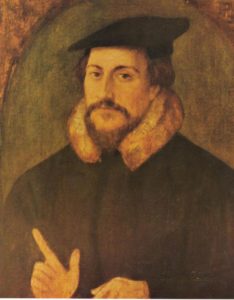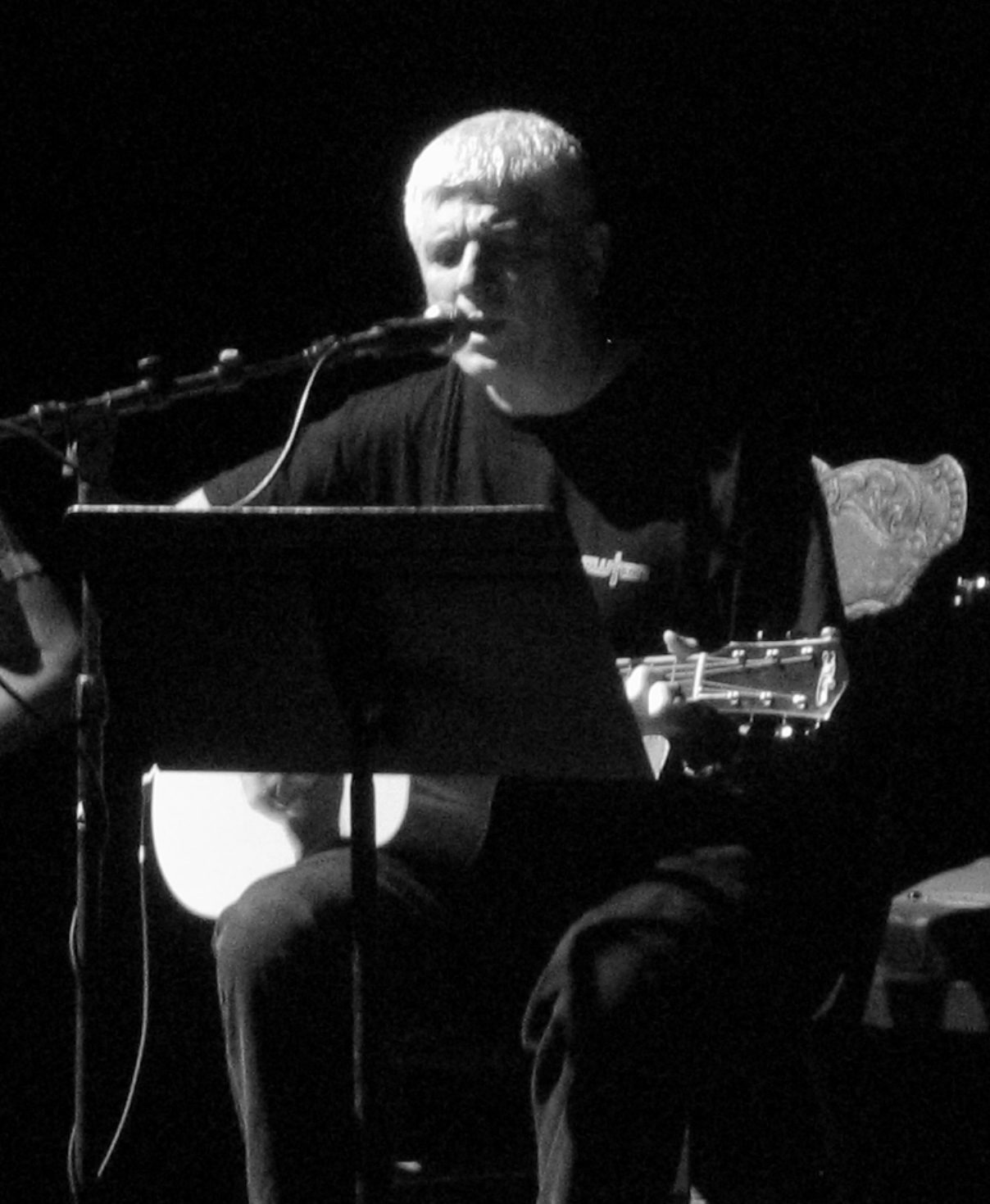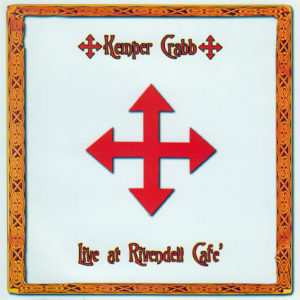Christmas Eve Service of Lessons and Carols

Our tradition at Covenant PCA is to have a Service of Lessons and Carols on Christmas Eve. We will do so again on Friday, December 24th, at 6 PM, and all are invited to join us. In this post, I will share some of the historical background for this special service.
The Festival of Nine Lessons and Carols is a tradition begun by Anglican Bishop E. W. Benson, who first employed it as a Christmas Eve service at Truro Cathedral in England in 1880. His son later wrote about it:
My father arranged from ancient sources a little service for Christmas Eve — nine carols and nine tiny lessons, which were read by various officers of the church beginning with a chorister, and ending, through different grades with a bishop.
This service was adapted in 1918 by Dean Eric Milner-White for use in King’s College, Cambridge, where it has become an annual Christmas Eve tradition. The performance there has been broadcast on the radio almost every year since 1928. Milner-White explained the purpose of the service in these words:
Its liturgical order and pattern is the strength of the service; the main theme is the development of the loving purposes of God, from the Creation to the Incarnation, through the windows and words of the Bible: the scriptures, not the carols, are the backbone.
Our service at Covenant is an adaptation of this traditional service, and our goal is the same — to walk through the Scriptures to see how the redemptive history they record led to the birth of our Savior. We employ congregational reading and congregational singing throughout the service with a brief pastoral meditation. Please join us to take part in our Service of Lessons and Carols on Friday, December 24th, at 6 PM.
Reformation Day Conference 2021

Sunday Morning:
9:30 AM: Worship Service (“The Purpose of Worship”)
11:15 AM: Sunday School (“Calvin on Worship”)
12 Noon: Potluck Fellowship Meal (Fellowship Hall)
Sunday Evening:
5 PM: Evening Worship (“Biblical Preaching”)
Dr. Joseph A. Pipa, Jr. is President Emeritus and Professor of Systematic
& Applied Theology at Greenville Presbyterian Theological Seminary. He
has served as pastor of PCA churches in Mississippi, Texas, and
California. Dr. Pipa earned his Ph.D. with a thesis on “William Perkins and
the Development of Puritan Preaching” at Westminster Theological
Seminary. He is an author of or contributor to many books, including The
Root and Branch, The Lord’s Day, Galatians: God’s Proclamation of
Liberty, and The Worship of God: Reformed Concepts of Biblical Worship.
Dr. Pipa is a frequent guest preacher and speaker at Reformed churches
and conferences.
Water Delivery to Hermanville, MS

Each summer, Covenant sends a team to conduct a Vacation Bible School program in Hermanville, MS. That community was struck hard by the recent bad weather, losing power and drinking water. We were pleased to be able to to send a few of our folks with a shipment of water to help out. Please continue to pray for our friends in Hermanville, as they have continuing mercy needs.
“The Foundations” Sunday School Series

Beginning Sunday, February 7th, our youth and adults will be viewing and discussing the 12-episode Ken Ham video series, The Foundations. In Psalm 11:3, David asks, “If the foundations are destroyed, what can the righteous do?” In his convicting yet often-humorous style, Australian-born Ken Ham addresses urgent concerns in society and reveals what must be done to reach today’s culture for Christ.
The following topics will be discussed:
- The Relevance of Genesis
- Always Ready (Evangelism)
- Revealing the Unknown God
- In Six Days
- One Blood, One Race (Racism)
- Death the Enemy
Join us for The Foundations series on Sunday mornings at 11 AM.
A Prayer for President Biden

|
|
Christmas Gifts: Redeeming the Routine

“What did you get for Christmas?” That was a question I heard many times as a child each year in the days following December 25th. It invited a rehearsal of all the gifts I had received in my Christmas stocking and around the Christmas tree, and I was more than happy to respond with a litany of my Christmas loot. After all, I had been anticipating the annual rite of ripping into the wrapping paper for many months. Finally, items from my wish list were really mine to own, enjoy, and talk about. It sure is fun to receive gifts!
My good friend, Tom, used to tweak the typical post-Christmas interrogation by asking a slightly different question: “What did you give for Christmas?” He would not place any emphasis on the word “give,” and quite often people would misunderstand and respond with a list of things they had received. Tom would smile, interrupt the excited recital, and say, “I didn’t ask what you got for Christmas. I asked what you gave for Christmas.” He didn’t do this to play the part of Scrooge but to challenge folks to find joy in the other side of the gift exchange equation.
I, for one, appreciated Tom’s gentle challenge. To be sure, I like to receive gifts and am still known to compile a wish list as Christmas approaches. But I’ve found increasing joy in giving gifts at Christmas and on other occasions. Gift giving is quite an art. To be done well, it requires really knowing the recipient and reflecting on what would be meaningful to him or her. Such gift giving is not perfunctory; it is an expression of love and friendship. “Success” is found in the expression of joy on the recipient’s face that says the gift was well chosen (or at least that the attempt was appreciated!).
The world tries to commercialize Christmas, making the exchange of gifts a veritable sacrament of capitalism. We’re told that we need to spend a lot, since the price of a gift is supposed to be a measure of its worth. To that I say, “Bah, humbug!” We can give without breaking the bank, when giving is an expression of love based in knowledge of the beloved.
As Christians, we know that God gave the greatest gift ever when He sent His Son into the world to be born in Bethlehem. At Christmas, we commemorate the birth of our Savior – surely a cause for festivity and the festive exchange of gifts. As that day approaches, let us look forward to it with joyful anticipation. But let us be careful that ours not be a materialistic joy rooted only in what we expect others to give to us. Let our gift exchange be a true celebration of the gift of our Savior and not an expression of the worst aspects of capitalism.
Jesus said, “It is more blessed to give than to receive” (Acts 20.35). With that in mind and in homage to my late friend, Tom, I ask: “So what are you going to give this Christmas?”
Pandemic Worship Protocols

We are gathering in person for our morning worship service with modifications to address coronavirus concerns. This includes physical distancing in sanctuary seating, having offering plates in the back, and celebrating the Lord’s Supper with pre-packaged elements to avoid passing plates. No nursery is being provided, but young children are welcome (as always) to sit with their parents in worship.
Sunday School is offered for all ages following morning worship, and we have Sunday evening worship at 5 PM.
All are encouraged to wear face masks when entering and leaving the sanctuary. Face masks are optional during the worship service.
I was glad when they said to me,
‘Let us go to the house of the Lord.’
(Psalm 122.1)
Art Matters: In Defense of John Calvin

A few years ago I read an engaging essay by Lauren F. Winner entitled, “The Art Patron: Someone Who Can’t Draw a Straight Line Tries to Defend Her Art-Buying Habit.”[1]In it, she offers an apology for Christians spending money on art even when there are other good ways such money could be used. I appreciate what she says and am sympathetic to her perspective. But one thing about the essay grated on me. She writes, “Granted, there is a strain in Christian theology that is hostile to visual art – that says art is a waste of time, or an indulgence, tantamount to idolatry.” I was nodding in concerned agreement as I quickly turned to the endnote to learn what modern fundamentalist scoundrel she cited to justify this statement. I was shocked to find that the note reads in its entirety, “See John Calvin, InstitutesI.xi.” That raised my Presbyterian hackles. Was Calvin really the enemy of the arts that Ms. Winner implies him to have been? The answer is decidedly, “No.”
That chapter in the Institutes of the Christian Religion is entitled, “It Is Unlawful to Attribute a
Visible Form to God, and Generally Whoever Sets Up Idols Revolts Against the True God.” The
entire section is a critique of idolatry, especially of making visible representations of the invisible God to be used in worship. Calvin pulls no punches in condemning such idolatry, but
he also makes clear that he is not thereby condemning artistic creation per se. He writes:
And yet I am not gripped by the superstition of thinking absolutely no images permissible. But because sculpture and painting are gifts of God, I seek a pure and legitimate use of each, lest those things which the Lord has conferred upon us for his glory and our good be not only polluted by perverse misuse but also turned to our destruction.
In the clearest of terms, Calvin declares the visual arts to be “gifts of God” which He has given us “for his glory and our good.” These are hardly the words of one who “says art is a waste of time, or an indulgence, tantamount to idolatry”! Calvin affirms the goodness of art while warning against its abuse.
The fact is that Reformed theology, historically rooted in Calvin, provides fertile soil in which the arts can thrive. Abraham Kuyper noted this in his Stone Lectures at Princeton in 1898:
[I]f we confess that the world once was beautiful, but by the curse has become undone, and by a final catastrophe is to pass to its full state of glory, excelling even the beautiful of paradise, then art has the mystical task of reminding us in its productions of the beautiful that was lost and of anticipating its perfect coming luster. Now this last-mentioned instance is the Calvinistic confession…. Standing by the ruins of this once so wonderfully beautiful creation, art points out to the Calvinist both the still visible lines of the original plan, and what is even more, the splendid restoration by which the Supreme Artist and Master-Builder will one day renew and enhance even the beauty of His original creation.
Kuyper’s statement doesn’t constitute a full-fledged Christian aesthetic, but it does demonstrate how Calvinistic thinking comports with a very positive view of the arts.
Writers of the Calvinian school have been among the most active in modern times in developing and promoting Christian aesthetic concerns in evangelical circles. In this regard, one can cite Reformed scholars such as Hans Rookmaaker (Modern Art and the Death of a Culture), Calvin Seerveld (Rainbows for the Fallen World), and Nicholas Wolterstorff (Art in Action: Towards a Christian Aesthetic). At the popular level, Francis Schaeffer (Art and the Bible) powerfully challenged Christians to have an interest in art and to be supportive of artists. I suspect that, directly or indirectly, Ms. Winner’s appreciation of art as a Christian owes a debt to such heirs of John Calvin.
We certainly want to acknowledge that debt and live up to our heritage when it comes to the arts at Covenant Presbyterian Church. We reject Art (with a capital “A”) as a religion unto itself, but we affirm the arts as an arena in which we can honor God and bless those made in his image.
To that end, our Reformation Conference this year will be dedicated to the theme, “The Reformation and the Arts.” Musician/pastor/author Kemper Crabb will speak about how the Reformation provided liberation for art to flourish. And he will share his own artistic gifts with us through a musical concert on Sunday night. Please plan to join us with our special guest, Kemper Crabb, on Sunday, October 27th.
[1]This appears as chapter 3 in W. David O. Taylor, ed., For the Beauty of the Church: Casting a Vision for the Arts(Grand Rapids: Baker Books, 2010).
Kemper Crabb Concert

Covenant Presbyterian Church is pleased to host Kemper Crabb in concert on Sunday, October 27th at 5 PM. The concert is part of our celebration of “The Reformation and the Arts” and is free and open to all.
Kemper has written of his vision as a Christian artist:
All of creation is the Ultimate, Ongoing Work of Art. God is the Ultimate Artist, and we, created in His Image, make Art that, like everything else, reveals God. It is also true that, as Christians called to be artists, we are specifically called to utilize our gift … in such a way that men see God, His Glory, more clearly in Creation, and are thus affected by that vision.
Kemper Crabb has more than four decades of experience as a Christian musician. His first band, Redemption, released an album in 1974 that exemplifies the “Jesus Music” of that era. Redemption evolved to become ArkAngel whose Tolkien-influenced 1980 album, Warrior, is considered a classic by believers and non-believers alike. In 1982, Kemper blended Medieval and Celtic themes on The Vigil.

From the 1990’s on, Kemper has been actively performing and recording. Among a number of releases are two Christmas albums: A Medieval Christmas (1996) and Downe in Yon Forrest (2009). The latter is the soundtrack for his Christmas concert broadcast on PBS. He has performed and recorded with the bands Caedmon’s Call and Atomic Opera. His 2010 album, Reliquarium: Future Hymns from the Ancient World, was produced to honor and raise funds for his father’s missionary work.
A solo performance by Kemper Crabb is a rare treat, and we hope you’ll join us!
Church Address: 3720 N. Highland Ave., Jackson, TN 38305
Communicant Membership Class

Beginning Sunday, September 8th, our Sunday School time for children in grades 1-6 will be devoted to a Communicants Class. In the Presbyterian Church, children of members are considered non-communicant members until they make a profession of faith before the elders of the church. Upon approval by the Session, they become communicant members who may partake of the Lord’s Supper.
It is a joy to see covenant children come to the place in their lives where they can make a profession of personal faith in Christ and be admitted to the Lord’s Table. This is an important event in the life of each child for which he or she should be prepared. Our denomination’s Book of Church Order addresses this in a way that can provide helpful guidance for parents and elders to work together in the nurture of covenant children. Here are some excerpts:
When [believers’ children within the Visible Church] are able to understand the Gospel, they should be earnestly reminded that they are members of the Church by birthright, and that it is their duty and privilege personally to accept Christ, to confess Him before men, and to seek admission to the Lord’s Supper. (57-1)
The time when young persons come to understand the Gospel cannot be precisely fixed. This must be left to the prudence of the Session, whose office it is to judge, after careful examination, the qualifications of those who apply for admission to sealing ordinances. (57-2)
The Westminster Shorter Catechism speaks to the prerequisites for taking communion:
Q. 97 What is required to the worthy receiving of the Lord’s supper?
A. It is required of them that would worthily partake of the Lord’s supper, that they examine themselves of their knowledge to discern the Lord’s body, of their faith to feed upon him, of their repentance, love, and new obedience; lest, coming unworthily, they eat and drink judgment to themselves.
Another element in becoming a communicant member is the taking of membership vows. A child must be able to profess these vows with understanding and a commitment to keep them.
When we put all this together, we begin to get a picture of what is expected of children as they make a profession of faith. They must have an understanding of the gospel as well as a credible testimony to embracing the gospel through personal faith in Jesus Christ. They should demonstrate an ability to examine their own lives in order to recognize and repent of sin. They should also be able to understand and meaningfully affirm the vows of church membership. While it is understood that a child will not be able to articulate all these things in the same way as an adult, he or she should nevertheless be able to do so credibly in an age-appropriate way. The elders suggest parents are in the best position to determine when they believe their child is ready to take this step.
Our Communicants Class will be taught by Pastor Steven and his wife, Allegra, and will review the gospel and the basic teachings of the Christian faith using the Bible and the First Catechism. Each week, review sheets will be sent home so parents can help their children become grounded in these important truths. Our hope is that this will help children who have faith in Christ to be able to understand and articulate that faith.
Any child who wishes to become a communicant member must be examined by the Session. Completion of this class does not obligate a child to pursue communicant membership at that time nor does it guarantee a child will be approved by the Session. Nevertheless, the class will hopefully be one more means of covenant nurture for the children that participate as they prepare one day to make personal professions of faith and become communicant members of the church. May God bless all avenues of covenant nurture in our families and church so that our children grow up to be faithful men and women of God.
Parents with questions about the Communicants Class or communicant membership are encouraged to speak with Pastor Steven.
